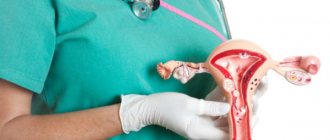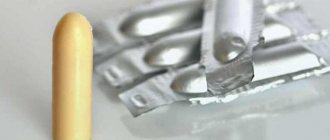Pregnancy is perhaps one of the most anticipated events in the life of any woman. She had never treated her body so carefully and with such scrupulousness.
At this time, great changes occur in the body, which do not always have a positive effect on the woman’s emotional state (from a state of complete calm there is a transition to unjustified panic or anger).
Naturally, the appearance of any type of disease in the 3rd trimester, even if minor, will not improve the condition and will not help the birth of a healthy child.
Just the anxiety of realizing that an infection has appeared in your body will add unnecessary trouble.
But nevertheless, if a yeast infection is detected (this could be thrush in the third trimester of pregnancy), only your doctor will help cure thrush during pregnancy and give birth to an absolutely healthy continuation of the family.
Symptoms of the early stage of thrush and the causes of the disease
The causative agent of the disease is yeast-like microorganisms of the genus candida albicans, which prefer mucous membranes as their habitat. Fungi are considered opportunistic, and in small quantities their presence in the body (the mucous membranes of the stomach, intestines, genitals and oral cavity) is considered normal, but if the maximum value is exceeded, the area affected by microorganisms can become the vulva and cervix, which can lead to infection of the water bladder.
The reasons for the activation of candida and their excessive reproduction are internal factors:
- decreased immune system functions;
- changes in hormonal levels in the body of the expectant mother and its preparation for bearing a child;
- chronic diseases aggravated during pregnancy;
- taking medications, including antibiotics;
- diabetes and blood diseases (anemia, high sugar or cholesterol);
- poor diet;
- frequent viral and infectious diseases of the expectant mother;
- diseases of the digestive system;
- taking certain medications without a doctor’s prescription;
- colpitis and other “female” diseases.
Also, the prerequisites for the development of thrush are often considered to be excess body weight and wearing tight and uncomfortable underwear made of synthetic, non-breathable fabrics; in this case, gynecologists recommend abandoning thong panties.
Microorganisms are often transmitted through unprotected sexual contact from partner to partner.
The symptoms of the disease are more than typical:
- itching and slight inflammation of the genitals;
- the appearance of cheesy discharge of varying intensity and color, from white to yellow-greenish;
- characteristic sour smell on the gusset of linen.
The itching can be intermittent, but yeast activity usually peaks in the afternoon and evening, and after urination. As practice shows, the more advanced the process in terms of time and area of fungal infection, the thicker and more abundant the discharge is observed. However, this should not serve as a reason for self-diagnosis - in any case, consultation with a specialist is necessary.
In the absence of treatment, in addition to the discharge, there is significant redness of the mucous tissues, often reaching 85-90%, the symptoms subside, but a medical examination may reveal areas with a white or grayish-light coating, microcracks, areas of erosion and increased swelling.
The danger of thrush is aggravated by the fact that inflamed tissues are more vulnerable and susceptible to the proliferation of pathogenic and dangerous bacteria and microorganisms.
An accurate diagnosis is made by a doctor after a thorough examination of the patient and a smear taken for analysis.
Doing the right thing
Whatever the symptoms of thrush during pregnancy in the 1st trimester, only a gynecologist must treat this disease. Under no circumstances should you try to fix the problem yourself. It is very dangerous. Improper treatment of thrush during pregnancy in the 1st trimester can lead to serious pathologies of the fetus.
The fact is that it is during this period that the formation of the baby’s nervous system and the emergence of its internal tissues and organs begin. An incorrectly selected medicine can provoke disturbances in the process and cause dangerous complications.
Of course, in the early stages of pregnancy, candidiasis does not develop very often. But as the period increases, the risks increase.
Medications
Drugs that help overcome thrush include:
- candles;
- ointments;
- creams;
- vaginal tablets.
Manufacturers often produce the same drug in different forms, while maintaining its effectiveness. The main active ingredient is pimafucin, but by the end of the first trimester, the doctor may prescribe suppositories containing, in addition to it, components of the nystatin group.
| A drug | Reception scheme | Price |
| Natamycin (suppositories or tablets) | 1 suppository at night for 3-6 days | 225-278 rub. |
| Pimafucin (suppositories) | 1 suppository at night, 7 days | 318-522 rub. |
| Terzhinan (vaginal tablets) | 1 tablet at night for 6-7 days | 213-389 RUR |
| Betadine (suppositories or ointment) | 1 suppository or cotton swab with ointment at night, 7 days | 163-315 rub. |
| Ecofucin (suppositories) | 1 candle at night for a week | 195-248 rub. |
The peculiarity of the drugs used in the first trimester is a more gentle effect on the body of the expectant mother and baby, as well as the careful restoration of microflora, due to their low toxicity and low concentration of the active substance. Such drugs have a minimum of side effects and complications, but under appropriate conditions there is a possibility of relapse of the disease.
It is very important to remember that douching with aggressive solutions, such as soda, iodine or chlorhexidine, is undesirable. And the course of treatment prescribed by the doctor must be completed in full, even if the symptoms have completely disappeared or, on the contrary, worsened. The decision to re-treat is also made by the doctor.
A mandatory point upon completion of the course of treatment for thrush should be the prescription of drugs containing lactobacilli:
- Vagilak;
- Vaginorm S;
- Bifidumbacterin;
- Lactobacterin.
Medical observations have shown that in 15% of all cases, the cause of thrush is digestive dysfunction or intestinal diseases caused by poor diet or deficiency of ballast substances (dietary fiber and fiber).
In addition to the above, the doctor, at his discretion and guided by the general condition of the expectant mother, may prescribe multivitamins or immuno-strengthening drugs.
About thrush in pregnant women
Candida fungus is part of the vaginal microflora and is determined using laboratory tests. Normally, any woman has it, but in pregnant women the fungus often begins to multiply uncontrollably, leading to the development of colpitis. This causes the expectant mother a lot of inconvenience.
The first exacerbation often occurs in the first trimester. Sometimes the disease does not require treatment and goes away on its own. According to research, this happens in 40% of cases. The symptoms are not pronounced and may not bother the woman. If the symptoms of the disease are noticeable not only when examined in a gynecological chair, but are also felt, the woman needs to use medications prescribed by the doctor, the action of which is aimed at suppressing the proliferation of the fungus.
Traditional methods of treatment
Methods and means of alternative medicine are also used to treat thrush, but only as a companion to the main course.
It is important to remember that time spent waiting for the effect of herbal douches and baths can be detrimental to the baby.
The most acceptable is the use of infusions of the following herbs:
- chamomile;
- oregano;
- sage;
- St. John's wort;
- calendula;
- celandine;
- raspberry leaves.
Natural antiseptics complement medications well. To obtain an infusion, on average, take 2.5-3 tablespoons of dry herbs or mixture per 500 ml of boiling water and infuse with the lid closed for about half an hour. This decoction should be used well strained.
If desired, douching can be replaced with 15-minute warm baths or lotions. When choosing folk recipes, you should avoid those that recommend using decoctions of garlic, onions or other components that irritate the mucous membranes.
Prevention of candidiasis
Of course, it is possible to prevent thrush or reduce the risk of fungal growth to a minimum. An expectant mother, like no one else, needs to closely monitor her health and follow a number of rules.
Refuse “fashionable” synthetic underwear in favor of classic cotton models.
Change your underwear regularly, washing 2-3 times a day if necessary.
Try to avoid stress and tense situations - this is harmful for the baby and creates favorable conditions for the development of pathogenic microorganisms, since nervous tension makes protective functions less sensitive.
Eliminate from your diet unhealthy foods, sweets and flour, spicy, salty and smoked dishes, poor in minerals and vitamins, replacing them with fruits (dried fruits), vegetables and herbs with the obligatory consumption of fermented milk products. Take multivitamins if necessary.
| Multivitamins for pregnant women | «+» | «-« | price, rub. |
| ALPHABET Mom's health | The peculiarities of the interaction of various vitamins are taken into account, so this vitamin complex for pregnant women is available in tablets of three different colors. Thanks to the same feature of the release of this complex of vitamins, you can refuse to take one or another tablet if the pregnant woman is allergic to any component. Alphabet multivitamins for pregnant women contain the highest dose of iodine; no additional medications are prescribed | insufficient amount, so up to 12 weeks you should take additional folic acid | 311 |
| VITRUM PRENATAL | a large amount of iron, sufficient not only for prevention, but also for the treatment of the initial stages of anemia in pregnant women. These multivitamins also contain adequate amounts of folic acid. | does not contain iodine | 498 / 997 |
| COMPLIVIT MAMA | — | the dose of vitamins A and D is lower than in other complexes; in winter, this dose of vitamin B is not enough. Insufficient iodine content | 170 |
| Centrum Materna | sufficient amount of iodine and folic acid | a very large dose of vitamin A and B vitamins, which is why allergic reactions are often observed | 774 |
| PREGNAVIT | vitamin complex contains all the vitamins needed during pregnancy | except iodine and trace elements | — |
| Elevit | contain the largest amount of magnesium, which has a beneficial effect when there is a threat of miscarriage, and also improves blood circulation. This vitamin complex also contains sufficient amounts of folic acid | does not contain iodine | 504 /1495 |
Regularly take hormone tests and undergo medical supervision if you have chronic or congenital diseases that may affect the course of pregnancy.
Do not neglect daily walks and be in the fresh air, but avoid intense fitness classes and excessive physical activity.
Maintain personal hygiene and remove intimate perfumes, as well as soaps with a lot of fragrances. The best option is baby soap or just clean water.
In order for the baby to develop well and harmoniously, the expectant mother must have enough rest, eat well and on time, forget about worries and in no case expose her health to danger!
https://youtu.be/FgwZMrYYK6o
Why does thrush occur in the 1st trimester of pregnancy?
Candidiasis is caused not simply by the presence of fungi in the vaginal microflora, but by their active reproduction and imbalance of bacteria in the vagina. Most often this happens against the background of decreased immunity or hormonal changes in the body. Therefore, a pregnant woman immediately falls into the risk zone.
Additionally, factors such as:
- failure to comply with personal hygiene rules
- wearing synthetic underwear and tight pants
- poor nutrition, lack of vitamins
- taking antibiotics
- nervous tension, overwork, stress










